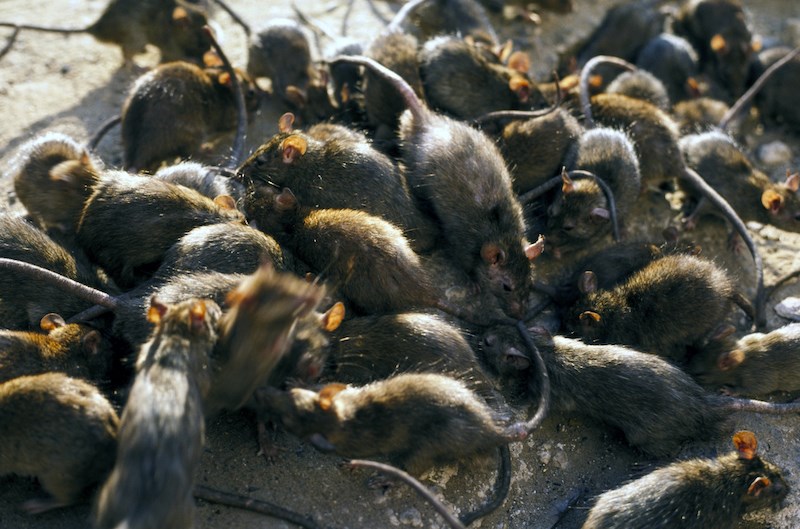A B.C. landlord was on the hook for a few thousand dollars after failing to keep a rental unit up to health and safety standards, according to a ruling from the Residential Tenancy Branch (RTB).
The tenancy commenced on May 1, 2019, and ended on July 31, 2019, with a monthly rent due of $1,500. In a previous decision on Dec. 10, 2019, the security deposit was dealt with and the landlord was granted an entitlement to lost rental income for August 2019.
The tenants filed a new claim for monetary compensation for their security deposit and recovery of the filing fee. The tenant also applied for a judicial review of the previous decision that awarded the landlord the August 2019 rent.
On July 22, the tenant said they informed the landlord about rats in the walls and droppings in the bedroom and living room. On July 24, 2019, the pest control company visited the unit and told the tenant that four generations of roof rats were living in and outside the unit. They also found juvenile rats in traps between July 24 and July 26; the furnace vents were covered with plywood and rocks to prevent the smell.
On July 30, the pest control company advised the tenants that the unit was unsafe for breathing due to "severe rat activity" in vents and furnace units.
On July 25, the tenant asked the landlord to seal off entry points to prevent rodents from entering the unit and to clean the vents and furnace. The landlord informed them that they had arranged a vent cleaning but did not make arrangements for repairs. On July 29, the tenant followed up on the repairs and the landlord allegedly threatened them, saying that the repairs were expensive and that they would serve a two-month notice if the renter pressed the issue further. In response, the tenant said they offered to enter into a mutual agreement and the landlord laughed and said "no."
On July 30, an advocate for the renters informed the landlord that they would move out in August and not pay rent for that month. The tenant said the unit smelled musty and the master bedroom "had what was later determined to be rat holes" when they moved in. The musty odour was later determined to be caused by rat feces and urine.
The tenant moved out after discovering the cause of the odours and the severity of the infestation. The tenants also said that the rodents caused medical problems in their pets.
Tenants and landlord discuss rodent situation in conference call
On July 29, the tenant said the parties held a conference call where the landlord agreed to end the tenancy immediately and return the security and pet deposits and return half of the rent paid during the tenancy. However, the landlord allegedly refused to sign the mutual agreement until after the move-out inspection after the tenants provided a reference.
The tenant said the landlord knew by July 28 before the mutual agreement that they wanted to leave because of the rats. The landlord argued they didn't know the unit had rats before July 25 and that during a previous, two-year tenancy, the renters never reported rodents. On July 26, a pest control company attended the unit and set traps under the crawl space and rats were found in the furnace in the underground space.
The landlord said no rats were found inside the unit but the tenant said the pest report of July 30 said they were.
The RTB said the landlord was entitled to keep the security deposit because the decision was "final and binding." However, they also believed the rodent issue preexisted the tenancy and they were responsible for having the unit up to safety standards.
Section 32(1) of the Residential Tenancy Act states that a landlord must provide and maintain residential property in a state of decoration and repair that Section 32(5) of the act provides that a landlord's obligations under subsection (1) (a) apply whether or not a tenant knew of a breach by the landlord of that subsection at the time of entering into the tenancy agreement.
In its ruling, the RTB said the pest control evidence sets out the "presence of a large number of rats under the unit, of rats having entered the furnace system, that the unit does not restrict the entry of rats into the unit, along with the tenant’s evidence of rats inside the unit and considering the landlord’s unsupported evidence of no rats at the onset of the tenancy, I find on a balance of probabilities that the tenants have substantiated that a rat infestation existed at the onset of the tenancy. I also find on a balance of probabilities that the landlord therefore breached its obligation to provide a unit suitable for occupation by the tenants."
The tenants were entitled to $2,250 in compensation as a "reasonable sum for having paid full rent for unsuitable occupation" and, since they were successful in their claim, the $100 filing fee. The landlord was ordered to pay $2,350.00 to the tenants.



